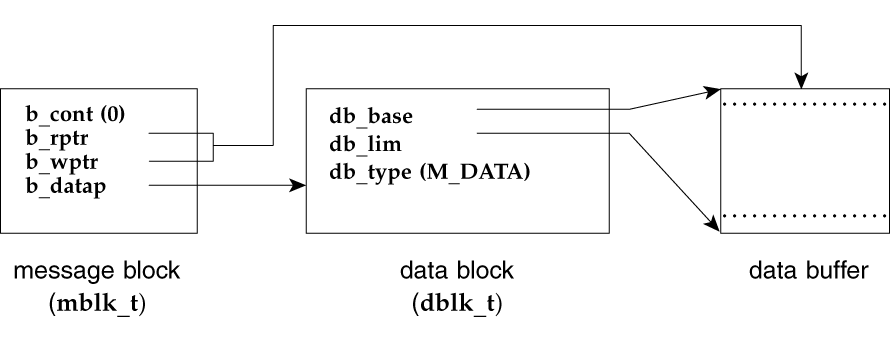| Skip Navigation Links | |
| Exit Print View | |

|
man pages section 9: DDI and DKI Kernel Functions Oracle Solaris 11.1 Information Library |
| Skip Navigation Links | |
| Exit Print View | |

|
man pages section 9: DDI and DKI Kernel Functions Oracle Solaris 11.1 Information Library |
csx_AccessConfigurationRegister(9F)
csx_Parse_CISTPL_BYTEORDER(9F)
csx_Parse_CISTPL_CFTABLE_ENTRY(9F)
csx_Parse_CISTPL_DEVICEGEO(9F)
csx_Parse_CISTPL_DEVICEGEO_A(9F)
csx_Parse_CISTPL_DEVICE_OA(9F)
csx_Parse_CISTPL_DEVICE_OC(9F)
csx_Parse_CISTPL_LINKTARGET(9F)
csx_Parse_CISTPL_LONGLINK_A(9F)
csx_Parse_CISTPL_LONGLINK_C(9F)
csx_Parse_CISTPL_LONGLINK_MFC(9F)
ddi_get_soft_iblock_cookie(9F)
ddi_intr_get_supported_types(9F)
ddi_prop_lookup_byte_array(9F)
ddi_prop_lookup_int64_array(9F)
ddi_prop_lookup_string_array(9F)
ddi_prop_update_byte_array(9F)
ddi_prop_update_int64_array(9F)
ddi_prop_update_string_array(9F)
ldi_prop_lookup_byte_array(9F)
ldi_prop_lookup_int64_array(9F)
ldi_prop_lookup_string_array(9F)
mac_prop_info_set_default_link_flowctrl(9F)
mac_prop_info_set_default_str(9F)
mac_prop_info_set_default_uint8(9F)
mac_prop_info_set_range_uint32(9F)
net_event_notify_unregister(9F)
net_instance_notify_register(9F)
net_instance_notify_unregister(9F)
net_instance_protocol_unregister(9F)
net_protocol_notify_register(9F)
nvlist_lookup_boolean_array(9F)
nvlist_lookup_boolean_value(9F)
nvlist_lookup_nvlist_array(9F)
nvlist_lookup_string_array(9F)
nvlist_lookup_uint16_array(9F)
nvlist_lookup_uint32_array(9F)
nvlist_lookup_uint64_array(9F)
nvpair_value_boolean_array(9F)
pci_plist_lookup_int16_array(9F)
pci_plist_lookup_int32_array(9F)
pci_plist_lookup_int64_array(9F)
pci_plist_lookup_int8_array(9F)
pci_plist_lookup_string_array(9F)
pci_plist_lookup_uint16_array(9F)
pci_plist_lookup_uint32_array(9F)
pci_plist_lookup_uint64_array(9F)
pci_plist_lookup_uint8_array(9F)
scsi_get_device_type_scsi_options(9F)
scsi_get_device_type_string(9F)
scsi_sense_cmdspecific_uint64(9F)
usb_get_current_frame_number(9F)
usb_get_max_pkts_per_isoc_request(9F)
usb_pipe_get_max_bulk_transfer_size(9F)
usb_pipe_stop_intr_polling(9F)
usb_pipe_stop_isoc_polling(9F)
- allocate a message block
#include <sys/stream.h> mblk_t *allocb(size_t size, uint_t pri);
Architecture independent level 1 (DDI/DKI).
The allocb() function tries to allocate a STREAMS message block. Buffer allocation fails only when the system is out of memory. If no buffer is available, the bufcall(9F) function can help a module recover from an allocation failure.
A STREAMS message block is composed of three structures. The first structure is a message block (mblk_t). See msgb(9S). The mblk_t structure points to a data block structure (dblk_t). See datab(9S). Together these two structures describe the message type (if applicable) and the size and location of the third structure, the data buffer. The data buffer contains the data for this message block. The allocated data buffer is at least double-word aligned, so it can hold any C data structure.
The fields in the mblk_t structure are initialized as follows:
set to NULL
points to the beginning of the data buffer
points to the beginning of the data buffer
points to the dblk_t structure
The fields in the dblk_t structure are initialized as follows:
points to the first byte of the data buffer
points to the last byte + 1 of the buffer
set to M_DATA
The following figure identifies the data structure members that are affected when a message block is allocated.

The number of bytes in the message block.
Priority of the request (no longer used).
Upon success, allocb() returns a pointer to the allocated message block of type M_DATA. On failure, allocb() returns a NULL pointer.
The allocb() function can be called from user, interrupt, or kernel context.
Example 1 allocb() Code Sample
Given a pointer to a queue (q) and an error number (err), the send_error() routine sends an M_ERROR type message to the stream head.
If a message cannot be allocated, NULL is returned, indicating an allocation failure (line 8). Otherwise, the message type is set to M_ERROR (line 10). Line 11 increments the write pointer (bp->b_wptr) by the size (one byte) of the data in the message.
A message must be sent up the read side of the stream to arrive at the stream head. To determine whether q points to a read queue or to a write queue, the q->q_flag member is tested to see if QREADR is set (line 13). If it is not set, q points to a write queue, and in line 14 the RD(9F) function is used to find the corresponding read queue. In line 15, the putnext(9F) function is used to send the message upstream, returning 1 if successful.
1 send_error(q,err)
2 queue_t *q;
3 unsigned char err;
4 {
5 mblk_t *bp;
6
7 if ((bp = allocb(1, BPRI_HI)) == NULL) /* allocate msg. block */
8 return(0);
9
10 bp->b_datap->db_type = M_ERROR; /* set msg type to M_ERROR */
11 *bp->b_wptr++ = err; /* increment write pointer */
12
13 if (!(q->q_flag & QREADR)) /* if not read queue */
14 q = RD(q); /* get read queue */
15 putnext(q,bp); /* send message upstream */
16 return(1);
17 }RD(9F), bufcall(9F), esballoc(9F), esbbcall(9F), putnext(9F), testb(9F), datab(9S), msgb(9S)
The pri argument is no longer used, but is retained for compatibility with existing drivers.